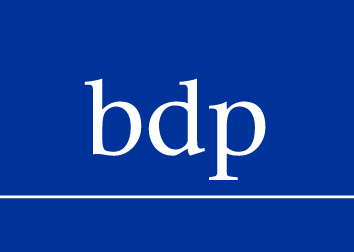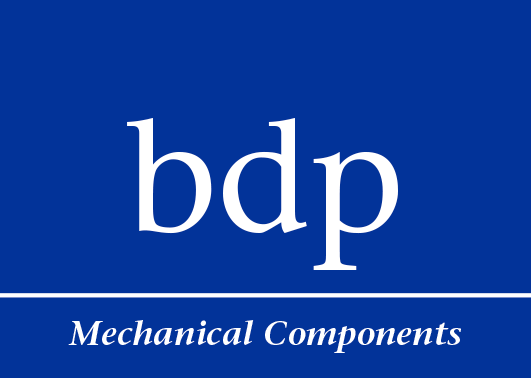Newsletter October 2021:
By: Fang Fang and Sara Zimmermann
A preliminary analysis of the German “Supply Chain Due Diligence Act”
Introduction: The German (Federal)Parliament approved the “Supply Chain Due Diligence Act” (hereinafter referred to as the “Supply Chain Act”) on June 11, 2021. The „Supply Chain Act” will come into force on January 1, 2023. This article will analyze the impact of the “Supply Chain Act” on German companies’ sourcing in China.
Key elements of the „Supply Chain Act”
For the first time, the German “Supply Chain Act” sets out clear requirements for companies’ due diligence obligations. Companies are required to ensure that human rights are protected in their supply chains, such as that suppliers shall not implement child labor, slavery, or forced labor. It also points out the provision of a safe and non-hazardous workplace, freedom for trade unions, the prohibition of discrimination, and fair wages. Environmental standards, such as protection against pollution of the atmosphere, water, earth, air, noise pollution, illegal deforestation, excessive water use, the use of immoral security services, and other severe environmental damage are addressed, too. The due diligence obligations thus relate to the monitoring of companies in fulfilling their due diligence obligations with regard to human rights and the environment.
That means that functioning international supply chains, as the COVID-19-related production shutdowns have recently shown in a different context, is increasingly critical to success for companies. The new supply chain act contains many new aspects but also some unresolved legal issues. Companies are generally required to take due diligence into account in an appropriate manner. In this case, the phrase “in an appropriate manner” is also geared towards the company’s size. However, it will only be shown in actual practice how extensive the effects on international sourcing will be.
To which companies does the Supply Chain Act apply?
According to Article 1.1 of the “Supply Chain Act”, the “Supply Chain Act” applies to companies that have their main place of business, headquarters, or offices in Germany. From 2023, it applies to companies with more than 3,000 employees in Germany; from 2024, it extends to companies with more than 1,000 employees in Germany, including factories and employees abroad.
The supply chain, in the sense of the “Supply Chain Act”, refers to direct and indirect suppliers who have an economic and trade relationship with German Companies. It encompasses all of a company’s products and services and all the steps required to manufacture products and provide services at home and abroad, starting with the extraction of raw materials through to the delivery to the end customer.
What are the due diligence obligations for companies?
The “Supply Chain Act” imposes additional due diligence obligations, which include:
- Establishment of risk management systems, regular risk analysis and the appointment of responsible persons
- Issue of policy statements, fulfillment of reporting obligations
- Establishing preventive, remedial and complaint procedures
According to Articles 5.1 and 5.3 of the Supply Chain Act, companies must analyze and identify human rights and environmental risks in their own operations and in those of their direct suppliers. The results of the risk analysis should be communicated to the relevant decision-makers in the company.
Preventive and remedial measures
According to Article 6 of the “Supply Chain Act”, if companies identify risks in the course of conducting a risk analysis, they must take appropriate preventive measures in their own business areas, but also with direct suppliers. According to Article 7 of the “Supply Chain Act”, if companies find that a violation of human rights or environmental obligations has occurred or is about to occur in their own business areas or with their direct suppliers, they shall immediately take appropriate remedial measures to minimize and remedy the harm caused by the violation of human rights or the resulting environmental pollution.
Companies shall review the effectiveness of preventive measures and remedial measures on an annual basis. Interim reviews shall be implemented if companies anticipate significant changes or increases in risk in their own business areas or with direct suppliers, for example, due to the introduction of new products, projects or new business areas.
Indirect suppliers
According to Article 9 of the „Supply Chain Act”, if there is an indication that an indirect supplier has violated its human rights obligations or environmental obligations (which has been proven), the company must fulfill its due diligence obligations and should conduct a risk analysis and take remedial measures to reduce human rights violations or environmental damage as much as possible.
Reporting obligations
As mentioned above, companies are required to continuously document and fulfill their reporting obligations by submitting an annual report to the German Federal Office of Economics and Export Control (BAFA) by April each year to demonstrate that they are fulfilling their obligations concerning human rights and environmental protection. The relevant documents should be kept for at least seven years.
What are the consequences of a violation of the Supply Chain Act?
The Federal Office of Economics and Export Control (BAFA) can impose fines between 100,000 and 500,000 and up to 800,000 euros for violations or omissions. For example, for failing to conduct due diligence throughout the entire supply chain, failing to perform a risk analysis when knowledge of human rights violations or environmental damage by suppliers, failing to take timely preventive measures and remedial measures possible, etc.
For large companies with an average annual turnover of more than 400 million euros, the fines can amount to up to 2% of the average annual turnover. Companies whose fines exceed 175,000 euros are excluded from participating in public tenders for at least three years.
Our Recommendations
- The due diligence process should be integrated into your company’s purchasing system. To do this, create a document on compliance with the “Supply Chain Act” and ensure that you and your suppliers meet the standards of the “Supply Chain Act”.
- Explain the German „Supply Chain Act” to your foreign suppliers and require your suppliers to self-inspect and report on their compliance with due diligence within the supply chain.
- Evaluate the manufacturing and processing operations of your new suppliers and contractors and conduct a human rights and environmental due diligence (audit). The human rights and environmental aspects are an integral part of the supplier evaluation.
- Comprehensively understand, review and analyze the risks in your own business processes and your supply chain to strengthen your own risk management
- Prepare emergency solutions for potential loopholes and violations in the entire supply chain. Develop appropriate risk avoidance procedures and corrective actions to eliminate or reduce risk.
- Regularly disclose your supply chain due diligence policies and practices on your company’s official website.
How bdp can support you?
- bdp’s legal, quality and procurement teams in China and Germany can help you draft or review your „Supply Chain Act Compliance Documents” and provide advice and recommendations on compliance and operability
- Training of your Chinese suppliers on the German “Supply Chain Act”
- bdp’s local quality and procurement teams in China carry out professional due diligence reviews on your behalf in China. Our professional bdp evaluation model is used to give you a comprehensive understanding of the compliance risks of your suppliers. We prepare a bilingual due diligence report for suppliers within one week of the tax audit. This includes the following areas:
-
- We collect the general information about the supplier (stability of top management, human resources, financial status, corporate reputation, environmental protection level, development planning, market positioning, etc.);
- We evaluate the manufacturing and processing operations of the suppliers and conduct a human rights and environmental due diligence (audit);
- We evaluate the business environment risks (such as of the geographical environment, political and cultural environment, economic and technological environment, etc.);
- Assessment of process, production and quality control risks (such as production equipment, testing equipment, technical process capability, quality management level, cost control level, inventory control level, etc.);
- Detailed assessment of supply and delivery risks as well as financial risks (e.g. customer satisfaction, product qualification rate, product price level, variety flexibility, quantity flexibility, time flexibility, etc.)
- We collect the general information about the supplier (stability of top management, human resources, financial status, corporate reputation, environmental protection level, development planning, market positioning, etc.);



